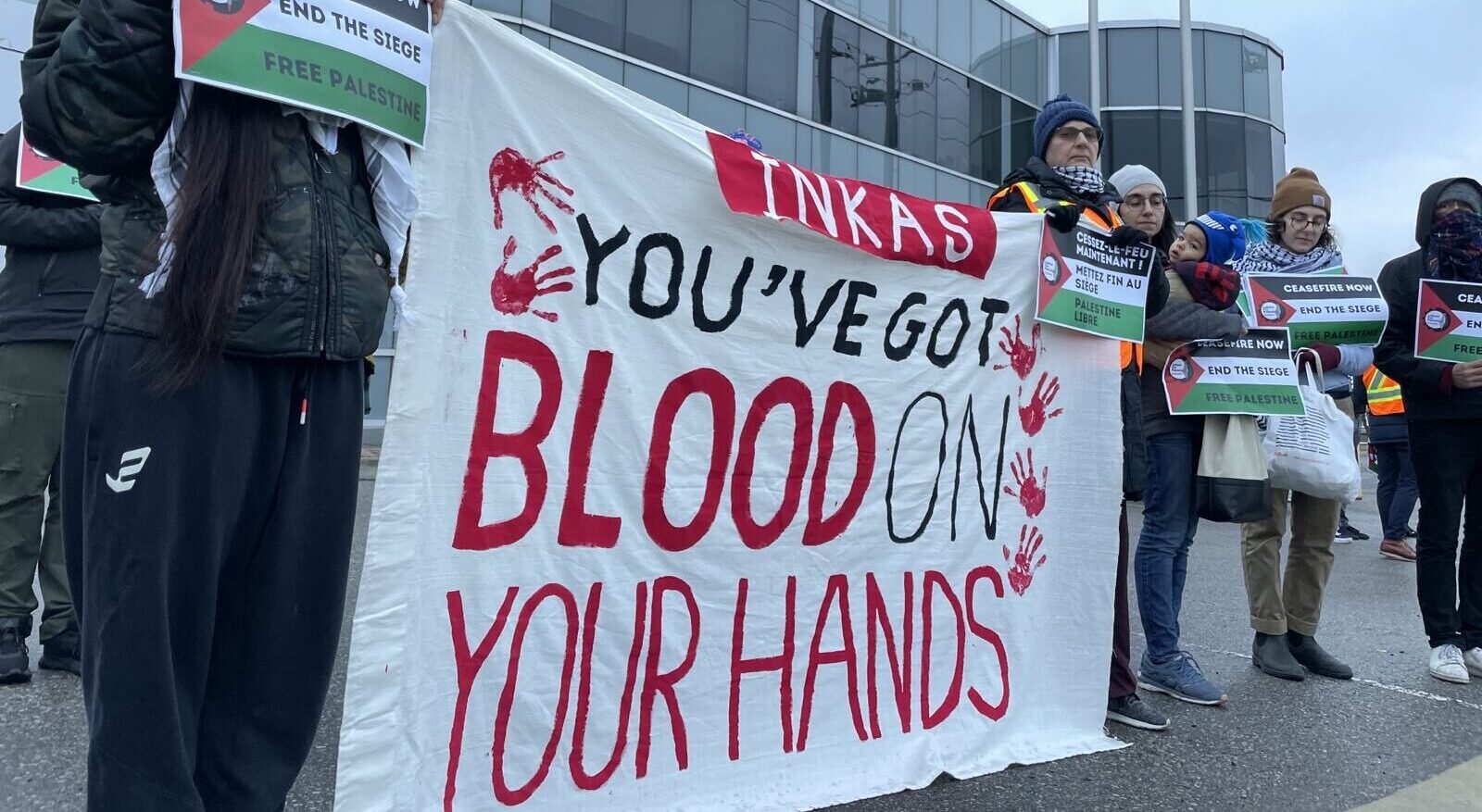A united front of four Belgian unions announced on October 31 that they would refuse to handle military equipment destined for war zones in Palestine. The unions – CNE, UBT, Setca and Transcom – explain that many handling workers at Belgium’s airports see shipments of weapons bound for Palestine, and that “the loading and unloading of these weapons contributes to arming organizations that kill innocent people”.
Denouncing genocide in Palestine, the unions end their communiqué by calling for an immediate ceasefire and declaring their solidarity with those campaigning for peace.
The statement follows a call by dozens of Palestinian trade unions for workers around the world to “halt the arms trade with Israel, as well as all military funding and research”.
In response to this call, over 150 British workers also took action to block the shipment of weapons likely to cause civilian deaths, by blocking the entrances to the Instro Precision Ltd factory on October 26. The factory, owned by Israeli arms manufacturer Elbit Systems, specializes in the production of electro-optical military equipment which is shipped to over 50 countries, including Israel and Saudi Arabia, two countries with particularly deplorable human rights records.

On October 25 in Toronto, trade unionists and workers’ organizations blocked the entrance to a factory belonging to Inkas, a Canadian multinational that manufactures armored vehicles for Israel. Naujawan Support Network, an organization that was present at the demonstration, explains in a statement:
“We are here with other workers’ organizations, responding to the Palestinian unions’ call to stop arming Israel. We are here to stop companies like Inkas from producing equipment that will be used to attack Palestinians. We are doing our part to stop the genocide.
On November 5, at the Port of Oakland in California, several demonstrators physically blocked a ship bound for Tacoma, Washington, where it would be loaded with weapons destined for Israel. The demonstration significantly delayed the departure of the Cape Orlando, a cargo ship that also carried weapons during the wars in Iraq and Afghanistan.
This is not the first time that the Arab Resource and Organizing Center (AROC), the organization responsible for this demonstration, has tried to prevent a ship from sending weapons to Israel. In the past, with the help of the International Longshore and Warehouse Union (ILWU), they have succeeded in outright blocking the departure of several ships.
In an interview with The Guardian following a similar action in 2014, Lara Kiswani, an AROC leader, explained: “For years, we were working with ILWU, with rank-and-file members and leaders, to try to raise awareness of the plight of the Palestinians. In 1984, she added, “ILWU took a position against apartheid and the workers refused to unload the ship.”


Be part of the conversation!
Only subscribers can comment. Subscribe to The North Star to join the conversation under our articles with our journalists and fellow community members. If you’re already subscribed, log in.